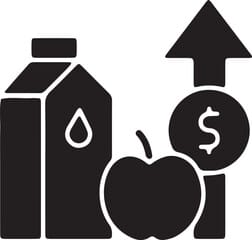Beating the cost of living – lessons from the pandemic

Again, this election has been dominated by arguments about the so called ‘Cost-of-Living Crisis’, and there are obviously a lot of Australians, including some in full-time work, that are doing it really tough.
There are also some drivers in the economy that have made life more challenging. The recent surge of inflation, largely driven by overseas events, and price spikes for insurance, energy and building materials to name just a few.
There have also been some things that have emerged such as the treatment of HECS debts that have led to education costs and the financial burden placed on younger Australians seemingly skyrocketing.
These are significant and I am not attempting to diminish that impact on many Australians. However, recently I was listening to a media program where they were talking to single parents about how tough it is to get by these days.
One parent went so far as to say she spent all her time turning off lights and urging her children to use less electricity. Maybe it’s me but I can remember my parents doing exactly that and driving their children crazy by constantly turning off lights, just as I did it to my children and as I am sure they will do it to their children.
Australians typically have never been good a saving money until we were hit by a pandemic. Then suddenly we weren’t able to spend money on a whole raft of things that we didn’t really need and suddenly there was money left in our banks accounts to save.
Now I’m not suggesting we return to the bad old days of lockdowns, particularly here in Victoria, but it does make you think that maybe the biggest issue with the cost-of-living crisis is that we spend too much on things we can live without.
For those that are doing it tough, maybe it is time to sit down and really go through your spending habits as an individual or as a family and just work out where every dollar is going.
Most people are very surprised when they do this, to learn just what they are really spending their money on.
This may not make much to difference to some people but for others it will and will lead to some thinking that maybe we don’t need to go out to dinner as often as we do or buy as many new clothes as often as we do or do so many of the things we do.
Importantly, times will get better. Children will get older and need less financial support. The economy will improve, interest rates will fall, and wages will grow and when we look back over our lives, so many things that seemed important fade into insignificance.
